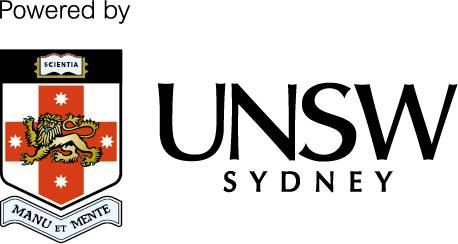With the announcement of the Federal election imminent, two prominent Australians are demanding political leaders address the issue of an Indigenous Voice to Parliament.
Listening to Paul Keating and Noel Pearson consider the progress, or lack thereof, of Indigenous rights in Australia, it is evident they have discussed it many times before.
In launching Pearson’s collection of essays, Mission, at the Judith Neilson Institute for Journalism and Ideas on Wednesday, the former Labor prime minister and the Aboriginal land rights activist stressed that the upcoming Federal election will be a critical juncture to push for the official representation of Indigenous and Torres Strait Islander voices.
A week after Labor Opposition leader Anthony Albanese, in his Budget reply speech, pledged to enshrine an Indigenous Voice in Parliament, Pearson and Keating called for the next Federal government to begin its term with a referendum.
Keating further urged Labor to act “on the front foot” and ensure an Indigenous Voice to parliament is established in its first term should it win the election.
“The centrality of these ideas feed the truth of the [Labor] party’s existence, feeds its soul. Otherwise you live a lie. I tried in the Redfern speech to articulate the lie, but we shouldn’t be living the lie … we’re still living the lie,” Keating said.
“There has not been a public policy issue as protracted and as involved as that to do with constitutional recognition of Indigenous Australians,” said Pearson, who served on the Senior Advisory Group established in 2019 to help co-design the Indigenous Voice to government. “I am disappointed that the conservatives haven’t risen to the occasion.”
'They have abandoned us in the past, like Bob [Hawke] did with national land rights back in the '80s. At the drop of a hat they’ll abandon us again.'
Four parliamentary processes and three public enquiries have transpired in the 14 years since then prime minister Kevin Rudd pledged his commitment to Indigenous reconciliation in 2007.
“When it was clear that Rudd was going to prevail at the [2007] election, he said we will deal with this in the second term. He never got a second term.
“I fear that the Opposition now is in danger of repeating the same mistake; deferring the question of putting recognition to the Australian people in a referendum,” Pearson said.
With Labor leading pre-election polling, Pearson warned the party should acknowledge its foundation of loyal First Nations voters. “Blackfellas are the base of the Labor Party,” he said. “There is probably no other group in Australia that more faithfully votes for Labor, than Aboriginal and Torres Strait Islanders. And yet the Labor Party’s respect for that base is often found wanting.
“They have abandoned us in the past, like Bob [Hawke] did with national land rights back in the '80s. At the drop of a hat they’ll abandon us again.”
Pearson recalls a conversation in 2015 where the then Minister for Communications, Malcolm Turnbull, sitting alongside a huge portrait of his wife, agreed that the constitutional recognition of a Voice was a “very sensible compromise”. Labelling Turnbull’s stance on the issue two years later “a complete turnaround”, Pearson said that Turnbullhad been influenced by the notion that an Indigenous Voice to Parliament would constitute a third chamber.
'I [had] hoped we would have reached the point that … any Indigenous leader wouldn’t be an Indigenous leader. They would be an Australian leader.'
This idea was debunked by legal experts who argued that such a body would have no power to enact legislation but simply represent the views of First Nations Australians by tabling them officially in Parliament.
“The constitutional recognition of a Voice would not prevent the Parliament from reshaping and redesigning the Voice, and amending its provisions,” said Pearson.
“But it would always maintain an obligation on the part of the Parliament to have a Voice.”
It is really the starting point before we can talk about treaty or agreement with the governments around the country.”
Indigenous and Torres Strait Islanders have not had a representative institution since the Aboriginal and Torres Strait Islander Commission (ATSIC) was abolished by the Howard government in 2005.
“We can’t conduct any kind of agreement or reconciliation negotiations with the Parliament without an institution. And I see the Voice as that necessary institution,” said Pearson, who has chosen never to go into politics. He Turned down a shot at Federal politics in the 1990s when Keating offered him the opportunity to stand in Lalor, a safe Labor seat, in the 1998 election.
“I believed you were the most qualified person to basically lead the country, and the Labor Party,” Keating said. Pearson said he declined due to lack of “self-belief”, with Julia Gillard eventually taking the seat.
“I always considered somebody in my position as first having to sort out the place of blackfellas in the country; until we sorted that out we couldn’t lead the country,” said Pearson. “I [had] hoped that at some point over the last three decades, we would have reached the point that … any Indigenous leader wouldn’t be an Indigenous leader. They would be an Australian leader.”
Listen to Paul Keating and Noel Pearson in conversation here.
Meg is a Media (Communications & Journalism) student at UNSW with a keen interest in current affairs. When she is not studying, you can find her with her head in a good book or sampling Sydney's finest espresso martinis.
Vivienne has graduated with a Media (Communication and Journalism) degree from UNSW Sydney. She loves period novels, cooking and a rowdy game of Uno.



Cultural ping pong: Dancing on the edge of two worlds